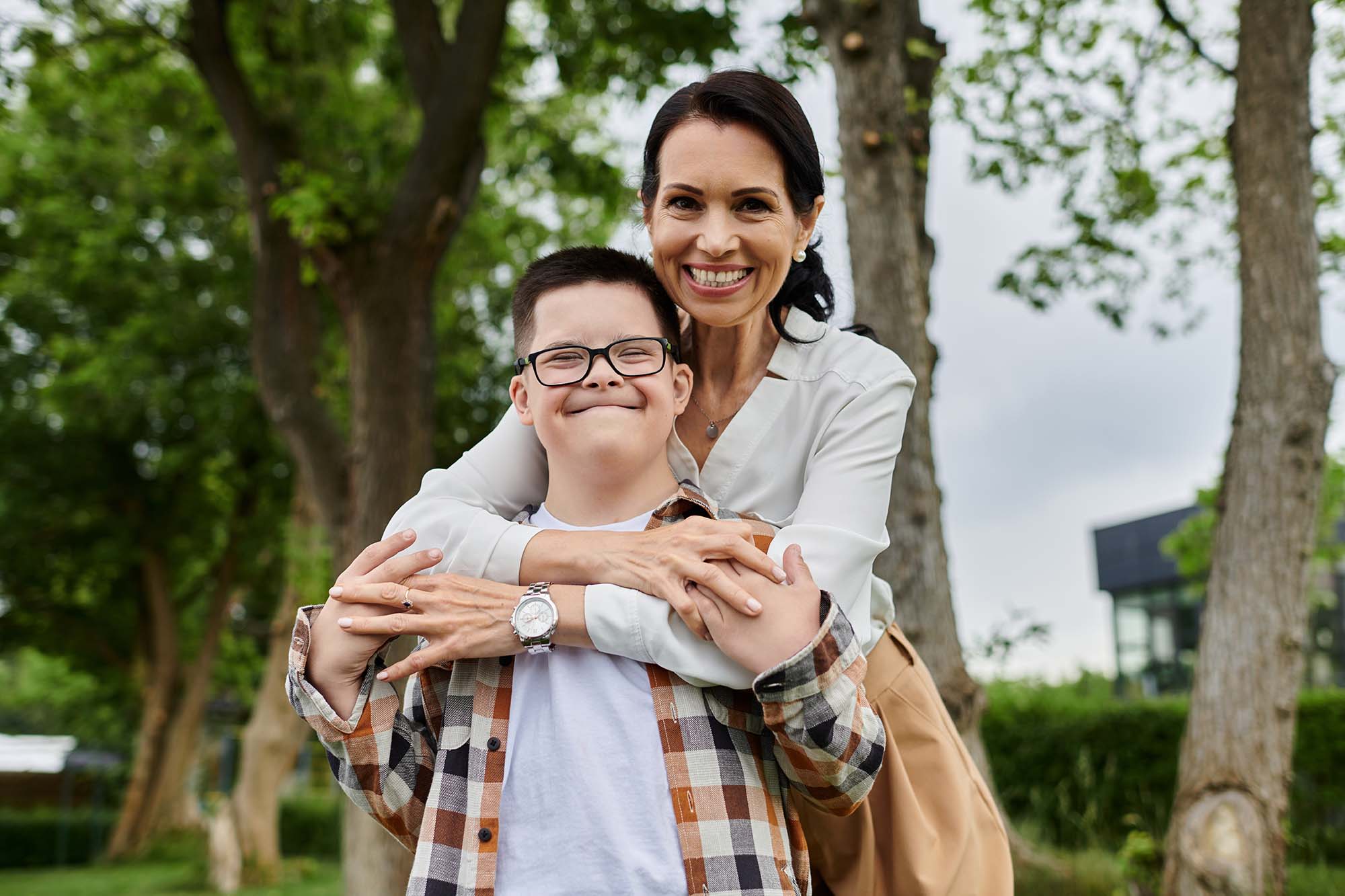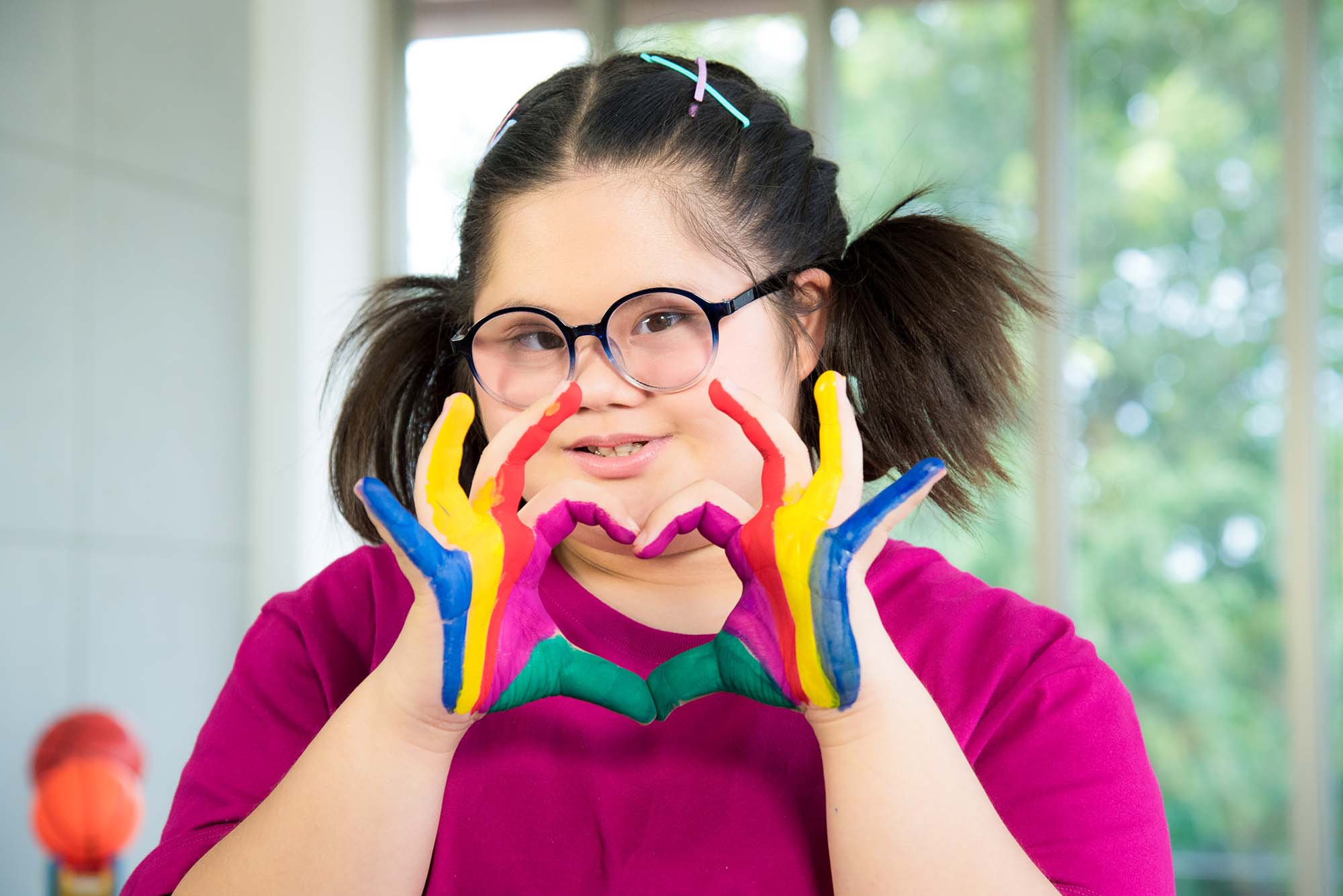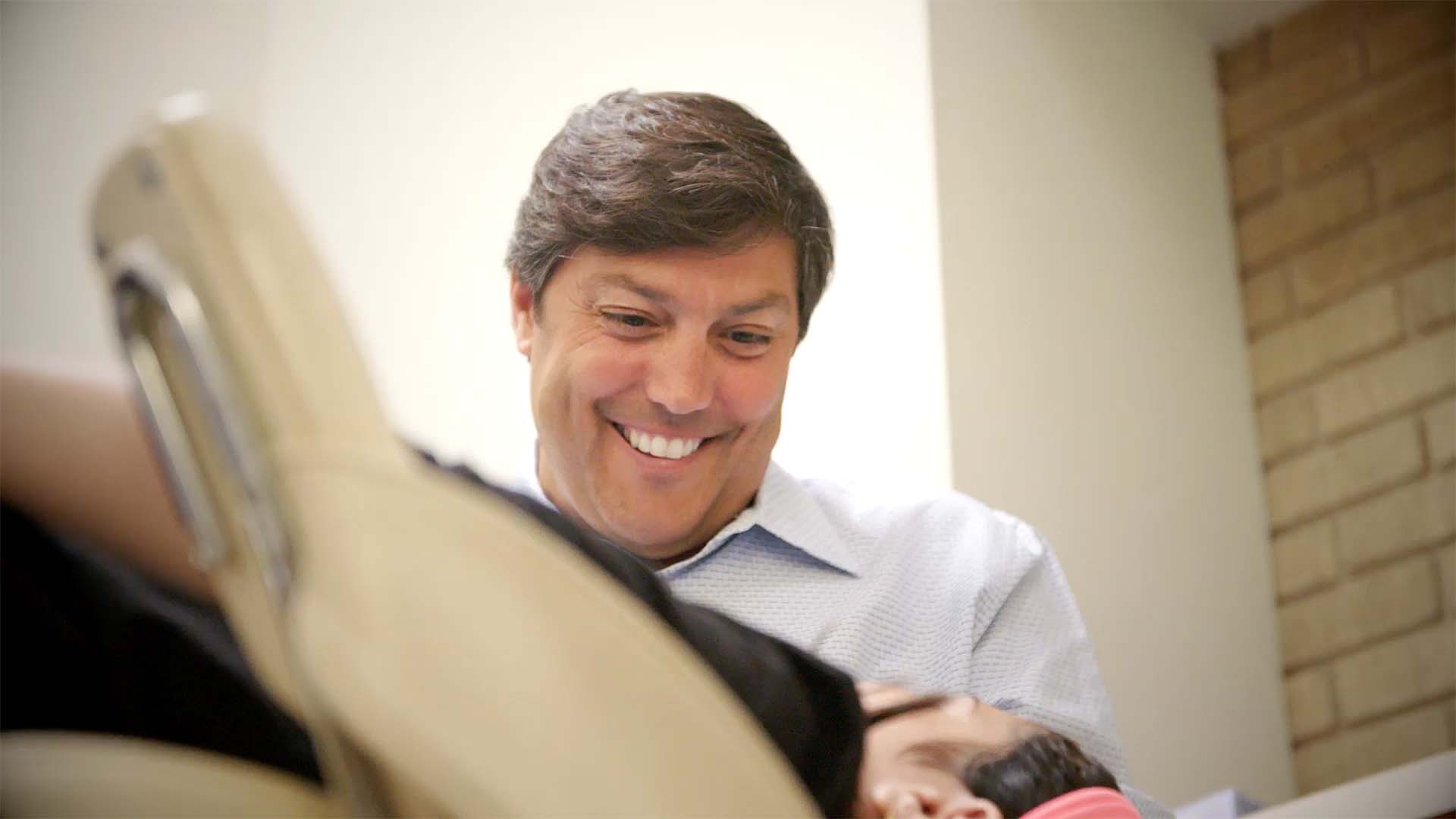Compassionate Care for Diverse Smiles
At Lippitz Orthodontics, we are passionate about providing exceptional care for every child, including those with special cognitive, physical, developmental, or behavioral needs. We understand that each patient is unique, and we warmly welcome children of all abilities. Dr. Stefen Lippitz and our compassionate team are dedicated to creating a supportive and understanding environment where your child’s individual needs are recognized and accommodated with the utmost care and gentleness.
If your child finds it challenging to sit still or keep their mouth open for extended periods due to their condition, we offer solutions to ensure they receive the necessary oral healthcare in the most comfortable way possible. Options like nitrous oxide and hospital anesthesia are available, providing a calm and safe environment tailored to your child’s needs. Our goal is to make each visit as stress-free and positive as possible, ensuring that your child feels at ease while achieving the best possible dental health.


Can Kids with Special Needs Get Braces?
Orthodontic care is integral to maintaining oral hygiene, but for patients with special needs, the journey towards a healthy smile can be fraught with unique challenges. Pain management, building confidence, and diminishing fear all play critical roles in treatment, particularly within the realm of pediatric dentistry where sensitivity and understanding are paramount. Customized approaches are necessary to ensure that every individual receives the support and care they deserve. Keep reading to learn how special needs orthodontics is adapting to provide exceptional care that acknowledges the diversity of smiles and the spectrum of patient requirements.
Benefits of Tailoring Orthodontic Treatment for Special Needs Patients
Patient-centered orthodontics vastly improves the likelihood of a successful treatment. When orthodontists fine-tune their approach, accounting for the individual needs of patients, they can better guide tooth movement and enhance overall dental health.
Attentive care provided by orthodontists allows for the seamless integration of orthodontic devices into the lives of those with special needs, causing minimal disruption while yielding maximum benefit. Careful attention to detail aids in crafting a positive experience and outcome.
The expertise of a dedicated orthodontist becomes apparent when they address each tooth with precision, considering the wide array of factors that can affect dental development in special needs patients. Their focused approach ensures effective alignment and improved oral function.
Orthodontics for patients with unique requirements goes beyond mere aesthetics; it significantly contributes to quality of life and self-esteem. Orthodontists who cater their services to this diverse group endorse this impact, championing a level of care that acknowledges the profound difference a smile can make.


Different Types of Special Needs and their Implications on Orthodontic Treatment
Orthodontic treatment demands a tailored approach, especially when addressing patients with special needs. Craniofacial anomalies, for instance, may arise from a variety of genetic or environmental factors and can significantly influence the structure and function of the mouth and teeth. Similarly, individuals with Down Syndrome often exhibit particular dental and anatomical characteristics that necessitate modified orthodontic techniques. For those living with Cerebral Palsy, muscle control and coordination challenges can impact their oral hygiene, treatment adherence, and susceptibility to injury. Autism Spectrum Disorder (ASD) introduces its own set of considerations; sensory sensitivities might require a gradual introduction to orthodontic equipment and environments, a process of desensitization to foster comfort and cooperation. In all cases, advancements in technology, the careful administration of medication, and supportive involvement from caregivers are instrumental in providing effective, empathetic care for children and adults with these diverse conditions.
Craniofacial Anomalies
Craniofacial anomalies present a unique challenge in orthodontics, requiring a blend of surgical intervention and precise tooth alignment strategies. Children and adults affected by these conditions may undergo orthognathic surgery to correct jaw discrepancies, and such procedures should harmonize with orthodontic treatment to optimize functional and aesthetic outcomes.
Patients experiencing craniofacial irregularities may feel heightened anxiety surrounding oral health care due to their complex medical histories. Effective communication and compassionate practice are critical as health care providers craft specialized treatment plans, ensuring each step addresses both the structural concerns within the mouth and the emotional well-being of the patient.
Down Syndrome
Individuals with Down Syndrome often exhibit traits that necessitate an empathetic understanding from their orthodontic team. Challenges with chewing and muscle hypotonia can affect the positioning of teeth, and thus, orthodontic strategies need to be adjusted to address these specific concerns.
Orthodontists with advanced training in treating patients with Down Syndrome can provide support that extends beyond the clinic, offering guidance on tooth brushing techniques tailored to motor skill variations. Their expertise helps ensure that oral health is maintained alongside the orthodontic adjustments being made.
Cerebral Palsy
For children and adults with Cerebral Palsy, muscle coordination issues extend to oral care, escalating the risk of tooth decay due to difficulty in performing routine dental hygiene. Orthodontists must devise special methods for managing these challenges to promote a healthy smile while reducing undue stress on the patient.
Considerations for those with Cerebral Palsy also include the management of involuntary tongue movements which can impact the positioning of teeth and the fit of orthodontic appliances. Tailored treatment plans are vital to prevent discomfort and ensure the stability of resulting dental corrections.
Autism Spectrum Disorder
Orthodontic care for individuals with Autism Spectrum Disorder, a developmental disability affecting behavior and communication, requires a special focus on accessibility to improve quality of life. Adjustments to routine orthodontic procedures, such as gentle jaw manipulations, can be crucial to accommodate sensory sensitivities and foster a sense of safety.
Regular visits and check-ups become essential in monitoring progress and ensuring that the orthodontic devices are not impacting the patient adversely. Respecting the unique needs of each individual with Autism Spectrum Disorder ensures their oral health is diligently managed without adding undue stress or discomfort.

Challenges of Providing Orthodontic Care for Special Needs Patients
Orthodontic practitioners sustain a profound commitment to compassion when adapting techniques for patients with various disabilities. This dedication becomes evident as they personalize therapy tools to fit each individual’s needs, alleviating discomfort and enhancing the effectiveness of treatment. An arsenal of modified tools, such as smaller brackets or bands, help align teeth with gentle pressure, minimizing the potential for oral irritation. Adjusting the archwire, an integral component of braces, accommodates unique dental arches, while innovative applications of dental adhesive secure devices firmly yet comfortably. For some, traditional metal braces may not be the best fit – clear aligners offer a less intrusive alternative, catering to those who might struggle with more conspicuous appliances. These specialized approaches underscore the nuanced care required to ensure orthodontic success amidst the complex landscape of special needs dentistry.
Techniques Used to Tailor Orthodontic Treatment for Special Needs Patients
The process of customizing orthodontic care for individuals with cerebral palsy often includes the creation of special appliances designed to accommodate the palate’s unique shape. These appliances aim to simplify oral hygiene maintenance while providing necessary orthodontic correction.
In the case of patients on the autism spectrum, orthodontic offices sometimes adapt their environments to reduce anxiety during visits. They may use visual schedules or calming distractions to align with the patient’s comfort levels, allowing for smoother completion of orthodontic treatments.
Using Smaller Brackets or Bands
Understanding the nuances of spectrum disorder, orthodontic professionals may opt for smaller brackets or bands, simplifying the management of oral appliances. This consideration mitigates the potential for discomfort, enabling patients with varying sensitivities to better tolerate their orthodontic journey.
Patients requiring concurrent plastic surgery and orthodontic work benefit from this thoughtful application of knowledge. Utilization of less invasive attachments facilitates the placement of a retainer post-surgery, fostering improved outcomes and patient satisfaction.
Adjusting the Archwire
Adjusting the archwire requires a nuanced approach for patients with sensory processing challenges, fostering a dental experience that minimizes discomfort. Careful recalibration of the tension helps to address issues such as bruxism, reducing the risk of damage to the teeth and gums.
As part of a comprehensive treatment plan, clear communication with patients during the adjustment of archwires ensures their understanding and comfort. This collaborative process allows orthodontists to fine-tune the pressure exerted by the archwire, essential for guiding teeth into their proper positions.
Applying Dental Adhesive
Applying dental adhesive in special needs dentistry requires not only precision but also a parent’s insight into their child’s tolerance for involved dental procedures. Account is taken of each individual’s reaction to the smells and textures associated with adhesive materials, which can affect both hygiene practices and comfort levels for patients with sensitive gums.
Tailoring adhesive applications to counter the oral manifestations of certain diseases becomes a cornerstone in special needs dental care. Dentists aim to secure orthodontic brackets with a firm yet gentle hold, safeguarding the integrity of the gums and ensuring the treatment progresses without adding undue hardship for the patient.
Using Specialized Appliances
In the realm of specialized health services, orthodontic offices regularly devise bespoke appliances to manage diverse conditions. These range from addressing malocclusion with custom-fitted braces to creating splints and guards that alleviate symptoms of temporomandibular joint dysfunction.
Furthermore, individuals with unique facial structures may benefit from tailor-made lip bumpers or palatal expanders, carefully designed to improve oral function and comfort. Orthodontists commit to crafting these devices with precision to address not just the aesthetic implications but also the functional health needs of their patients.

Today, Dr. Stefen Lippitz like his father, Dr. Herbert Lippitz before him, continues to create beautiful smiles that will exceed your expectations.
Your Orthodontist for Special Needs Kids
Dr. Stefen Lippitz brings an unmatched level of expertise and empathy to the field of orthodontics, particularly when working with patients who have special needs. His dedication to providing personalized, compassionate care is evident in every aspect of his practice. Dr. Lippitz understands that each patient is unique, and he tailors his approach to accommodate the specific requirements of individuals with various conditions. Whether it’s developing a gentle introduction to orthodontic equipment for those on the autism spectrum or creating specialized treatment plans for patients with craniofacial anomalies, his focus is always on creating a positive and supportive environment.
The team at Lippitz Orthodontics has extensive experience in managing the complexities of special needs orthodontics. He collaborates closely with caregivers to ensure that each patient receives not only the best possible dental outcomes but also an overall experience that is comfortable and reassuring. His dedication to continuing education and staying abreast of the latest advancements in orthodontic care ensures that patients benefit from the most up-to-date and effective treatments. With Dr. Lippitz, you can expect an orthodontic journey that is tailored, compassionate, and driven by a genuine desire to see every patient smile with confidence.
Schedule Your Free Orthodontic Consultation
A healthy, confident smile is within reach for everyone, and at Lippitz Orthodontics, we’re committed to making that journey as seamless as possible. Dr. Lippitz and his team are here to guide you through each step, ensuring personalized care that meets the unique needs of every individual. If you or a loved one are ready to explore orthodontic options in a welcoming, supportive environment, now is the perfect time to take the first step. Schedule your free orthodontic consultation today, and let us show you how a tailored approach can make all the difference in achieving the smile you’ve always dreamed of. Your journey to a brighter, healthier smile starts here.

